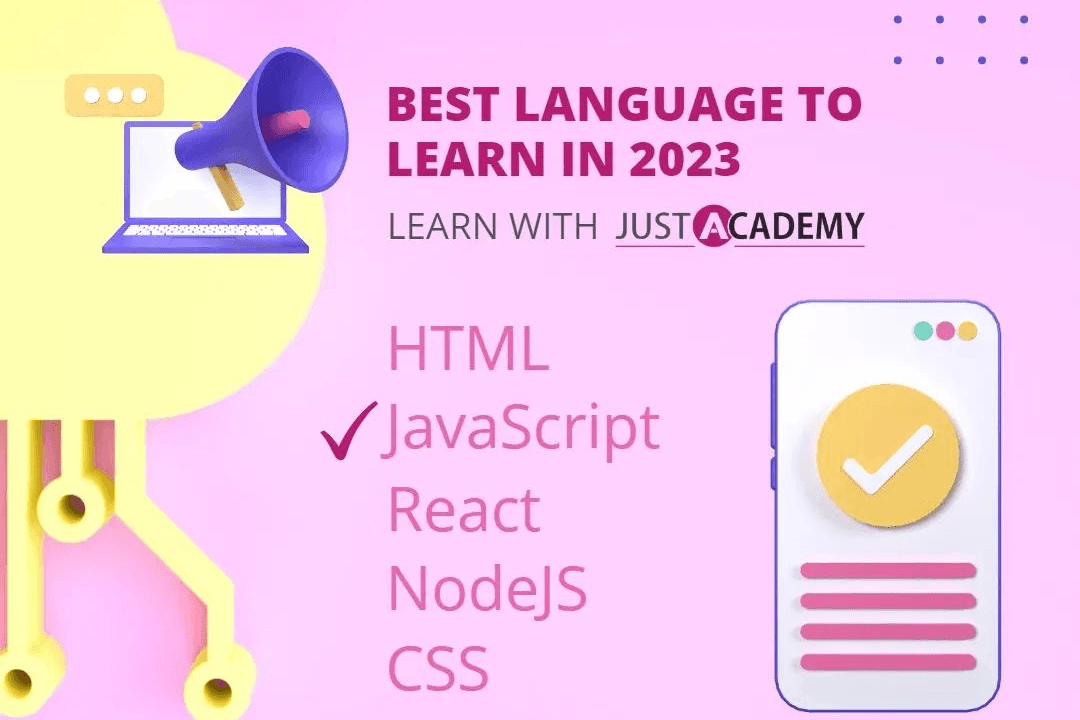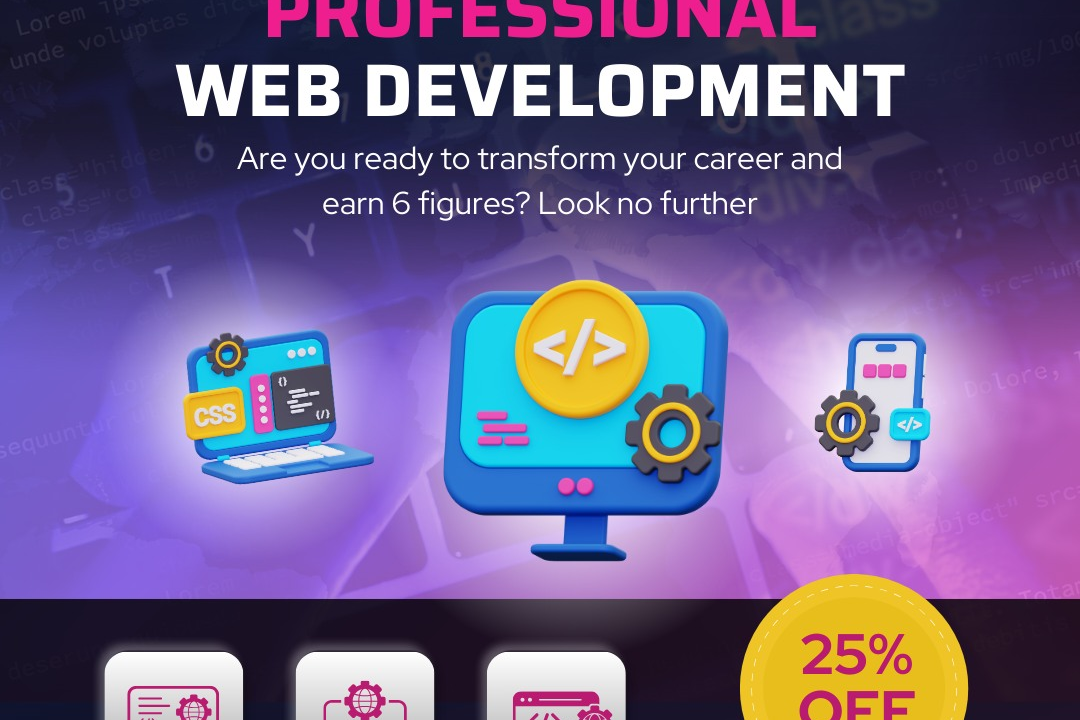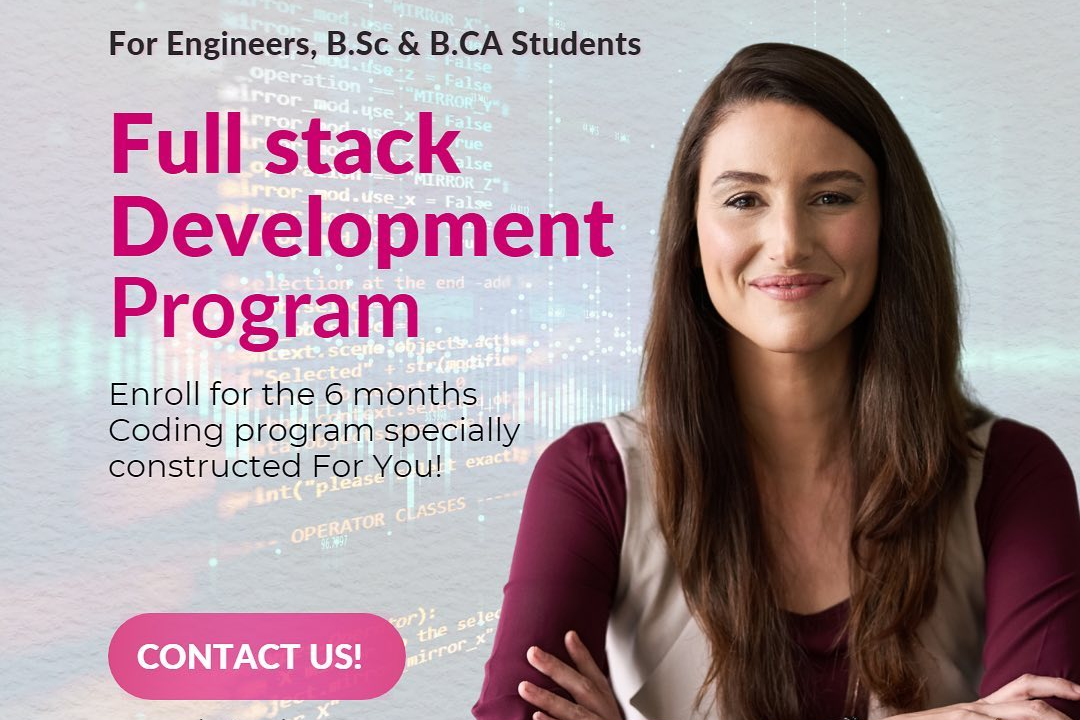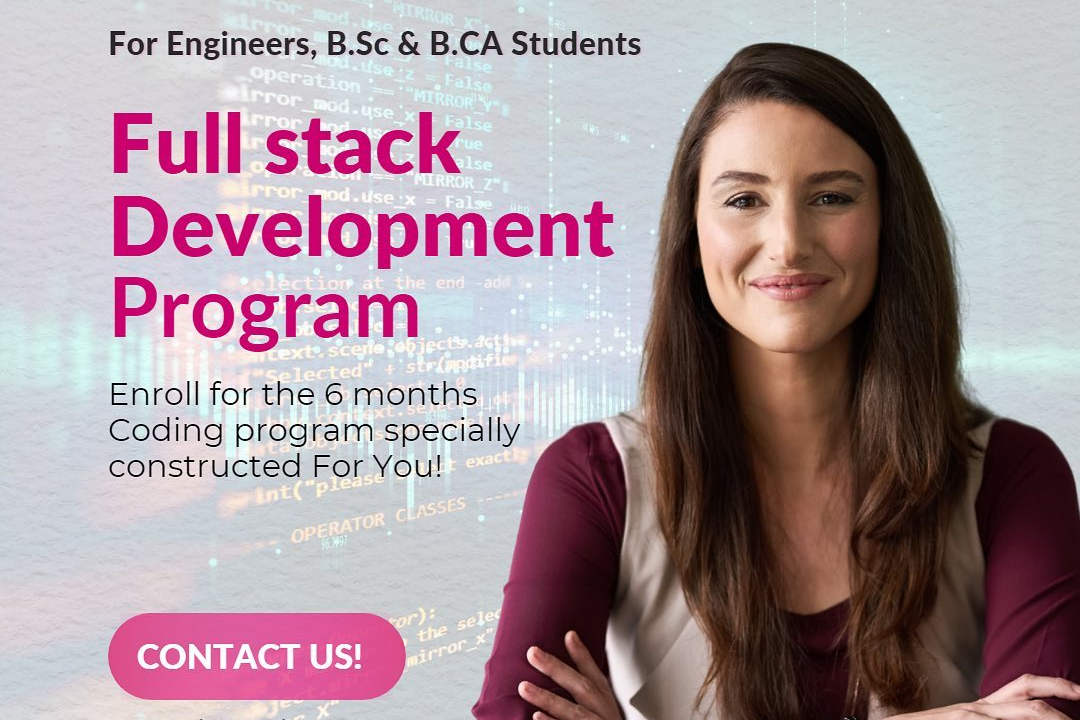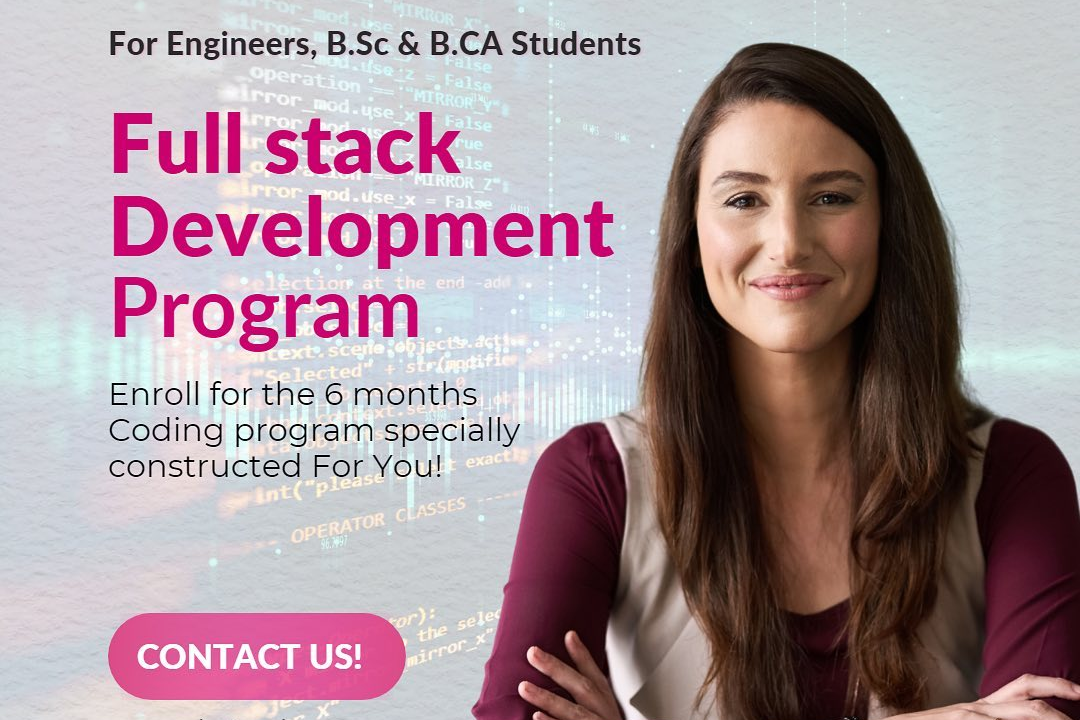How To Cmpile The Php Program
PHP programs are executed directly by the PHP interpreter, so they do not require compilation like t
How To Cmpile The Php Program
PHP programs are executed directly by the PHP interpreter without the need for explicit compilation, making the development process faster and more flexible. Since PHP is an interpreted language, developers can write, test, and modify code quickly, allowing for rapid deployment of dynamic web applications. This approach simplifies debugging and reduces the workflow complexity, making PHP an efficient choice for building scalable and maintainable websites. At JustAcademy, our PHP certification courses emphasize this hands-on, real-time development environment to help students master writing and deploying PHP programs effectively.
To Download Our Brochure: https://www.justacademy.co/download-brochure-for-free
Message us for more information: +91 9987184296
PHP programs are executed directly by the PHP interpreter without the need for explicit compilation, making the development process faster and more flexible. Since PHP is an interpreted language, developers can write, test, and modify code quickly, allowing for rapid deployment of dynamic web applications. This approach simplifies debugging and reduces the workflow complexity, making PHP an efficient choice for building scalable and maintainable websites. At JustAcademy, our PHP certification courses emphasize this hands on, real time development environment to help students master writing and deploying PHP programs effectively.
Course Overview
The “How to Compile PHP Program” course at JustAcademy provides a concise guide to understanding PHP execution, focusing on writing, interpreting, and running PHP scripts efficiently. It covers essential concepts, best practices, and practical steps to execute PHP code without traditional compilation, enabling students to develop dynamic web applications effectively.
Course Description
Learn the essentials of running PHP programs with this course, covering basic setup, script execution, and best practices for testing PHP code efficiently.
Key Features
1 - Comprehensive Tool Coverage: Provides hands-on training with a range of industry-standard testing tools, including Selenium, JIRA, LoadRunner, and TestRail.
2) Practical Exercises: Features real-world exercises and case studies to apply tools in various testing scenarios.
3) Interactive Learning: Includes interactive sessions with industry experts for personalized feedback and guidance.
4) Detailed Tutorials: Offers extensive tutorials and documentation on tool functionalities and best practices.
5) Advanced Techniques: Covers both fundamental and advanced techniques for using testing tools effectively.
6) Data Visualization: Integrates tools for visualizing test metrics and results, enhancing data interpretation and decision-making.
7) Tool Integration: Teaches how to integrate testing tools into the software development lifecycle for streamlined workflows.
8) Project-Based Learning: Focuses on project-based learning to build practical skills and create a portfolio of completed tasks.
9) Career Support: Provides resources and support for applying learned skills to real-world job scenarios, including resume building and interview preparation.
10) Up-to-Date Content: Ensures that course materials reflect the latest industry standards and tool updates.
Benefits of taking our course
Functional Tools
1 - PHP Compiler and Interpreter: The core tool used in understanding how to compile PHP programs is the PHP interpreter itself. It reads PHP source code, parses it, and executes the instructions. During training, students learn how the interpreter processes code line by line, converting it into a format that can be executed on the server. This foundational step is essential to grasp how PHP code runs in real time environments. Understanding the interpreter’s role helps students differentiate between compiling and interpreting and explore ways to optimize execution.
2) OPcache: OPcache is a popular bytecode cache for PHP that stores precompiled script bytecode in memory, significantly improving performance by reducing the need for PHP to interpret scripts on each request. In the training, students explore how OPcache works internally, enabling them to enable, configure, and optimize caching in their PHP applications. This tool demonstrates the real world impact of compilation and caching strategies, leading to faster load times and more efficient resource usage.
3) PHP Extensions: PHP extensions extend the core functionality and often involve compilation of additional modules written in C or C++. Students learn how these extensions are compiled and loaded into PHP, including configuring build environments, using tools like ‘phpize’, and linking extension modules. This knowledge is crucial for developing custom extensions or troubleshooting issues related to existing ones, providing insight into PHP’s modular architecture.
4) Development Environments (IDE and Command Line Tools): IDEs like PHPStorm, Visual Studio Code, or Sublime Text, coupled with command line tools such as PHP CLI and Makefiles, facilitate a streamlined workflow for writing, testing, and compiling PHP code. During training, students understand how integrated tools assist in syntax checking, debugging, and managing compilation processes, making the development process more efficient.
5) Build Tools (Make and CMake): For advanced developers, build tools like Makefiles and CMake are used to automate the compilation and linking of PHP extensions or custom C components. Training includes hands on practice with creating build scripts, managing dependencies, and optimizing build processes. These tools are essential for professional PHP development, especially when integrating PHP with other languages or developing high performance extensions.
6) Debugging and Profiling Tools (Xdebug, Valgrind): Debugging and profiling tools like Xdebug help analyze PHP scripts for errors and performance bottlenecks, providing detailed reports on code execution. These tools assist in understanding which parts of the code need optimization and how PHP executes it internally. Training emphasizes their use in diagnosing compilation related issues, ensuring students can write efficient, bug free PHP code.
7) Command Line Interface (CLI): The PHP CLI is a powerful tool that allows developers to run PHP scripts from the terminal. It’s essential for testing code snippets, running scripts in a controlled environment, and simulating server side compilation processes. Students learn how to leverage CLI commands to compile, execute, and troubleshoot PHP programs efficiently during the training course.
8) Version Control Systems (Git): Managing code versions is vital when compiling and developing PHP applications, especially in team environments. Students learn Git fundamentals to track changes, collaborate on complex projects, and revert to previous states if compilation issues arise. Proper version control ensures a smooth workflow and safety during the compilation and deployment processes.
9) Compilation Flags and Configuration Files: Understanding and utilizing PHP’s configuration files (php.ini) and compilation flags enables students to customize how PHP interprets and compiles code. Training includes instruction on how to modify these settings to optimize PHP performance, memory management, and security during compilation and runtime.
10) Containerization and Virtualization Tools (Docker, Vagrant): These tools help create consistent development environments, ensuring that PHP compilation processes behave uniformly across different systems. Students explore how to set up PHP environments using Docker containers or Vagrant, facilitating reproducibility, testing, and deployment of compiled PHP applications in various stages of development.
11 - PHP Source Code Management: Diving into the actual PHP source code, students learn how to clone, build, and customize PHP from its official repository. This hands on experience helps in understanding the internal compilation process of PHP itself, enabling advanced modifications or optimizations tailored to specific project requirements.
12) Performance Tuning and Optimization: Besides understanding compilation, the training emphasizes techniques for optimizing PHP scripts and configurations. Students learn how to analyze and fine tune the compilation process and runtime environment to achieve maximum performance, including opcode caching, memory management, and server level adjustments.
13) Cross Compilation Techniques: For deploying PHP in varied environments like embedded systems or specialized servers, learning cross compilation methods becomes essential. The training covers how to prepare PHP binaries compatible with different operating systems or hardware architectures, broadening deployment possibilities.
14) Automated Testing Tools (PHPUnit, Behat): To ensure that compiled PHP code runs correctly across different environments, students explore automated testing frameworks. These tools help in verifying code integrity post compilation, reducing bugs, and maintaining high quality codebases.
15) Security in Compilation and Deployment: Particularly during the compilation phase, understanding security best practices is vital. Training involves configuring secure compilation environments, managing trusted sources, and ensuring that compiled extensions or scripts do not introduce vulnerabilities into PHP applications.
16) Integration with Continuous Integration/Continuous Deployment (CI/CD): Students learn how to integrate PHP compilation steps into CI/CD pipelines. This automation ensures consistent builds, testing, and deployment of PHP applications, streamlining workflows in enterprise environments.
17) Cloud Based Compilation and Deployment: The training covers leveraging cloud platforms like AWS, Azure, or Google Cloud for building and deploying PHP applications. Students explore how to utilize cloud resources for scalable, flexible PHP compilation and hosting solutions.
18) Runtime Environment Configuration: Beyond compilation, understanding how to configure runtime environments—such as setting PHP runtime options, managing extensions, and adjusting memory limits—is crucial for optimized PHP execution in production.
19) Debugging Compilation Errors: Students develop skills to diagnose and resolve errors encountered during PHP compilation, whether from source code issues, environment misconfigurations, or incompatible dependencies, ensuring smooth build processes.
20) Custom PHP Build Tooling: Advanced courses introduce tools like PHP's ext skel and custom build scripts for creating tailored PHP distributions or extensions. This empowers developers to craft specialized PHP environments tailored to their project needs.
By exploring these additional points, students gain a comprehensive understanding of PHP's compilation and runtime processes, equipping them with the expertise to optimize, customize, and deploy PHP applications effectively across diverse environments.
Browse our course links : https://www.justacademy.co/all-courses
To Join our FREE DEMO Session:
This information is sourced from JustAcademy
Contact Info:
Roshan Chaturvedi
Message us on Whatsapp:
Email id: info@justacademy.co

